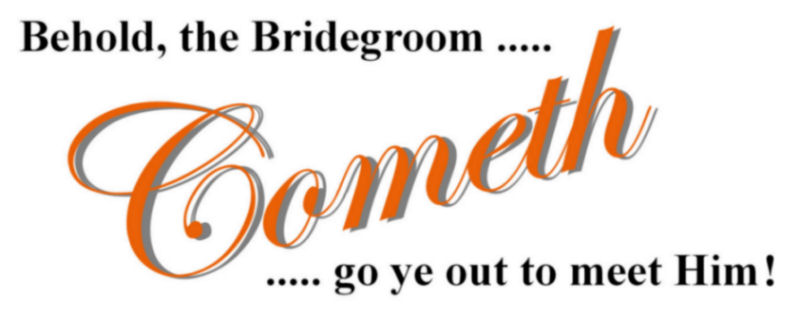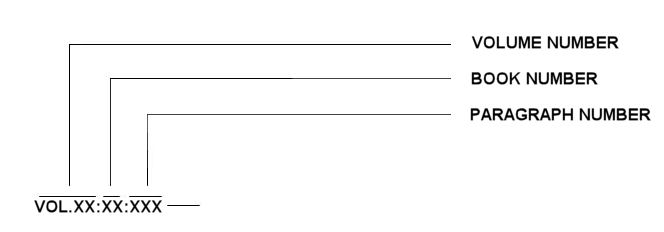
© Copyright 2010-23 The Midnight Cry All rights reserved


When Brother David Mamalis first became acquainted with William Branham in 1961, the pair began a close relationship that prospered until Brother Branham was called home to be with the Lord Jesus in December of 1965.
After 1965, Brother Mamalis began to collect seven inch tape and other recordings of his departed friend's sermons from wherever and from whomever he could obtain them. His sources included many unrestricted private recordings made by individuals and organizations across the United States, some of which proved to be the only recordings made of particular sermons. As his collection grew to number in the hundreds, he realized that others wished to listen to Brother Branham’s sermons and so began to copy and distribute the recordings from his home in Phoenix, Arizona to whoever wished to hear them.
As time passed, Brother Mamalis became aware that if Brother Branham’s sermons fell under the control of any organization or group, this would be detrimental to the interests of those who valued unfettered access to the sermon materials. During this period, he was employed as a Professor by the Arizona State University and held a Masters Degree in Librarianship. This qualification necessarily required that he be well versed in copyright law, but notwithstanding, he undertook additional formal studies and became expert in copyright law in order to take measures that would help ensure with certainty that the Message could never legitimately fall into the control of private individuals or organizations.
With the above in mind, he devised an index and classification system in 1969 to facilitate the research and study of the Message sermons and to provide linkage to other supporting materials. This included the following protocols,
Ownership of William Branham's Sermons .... continued
Under this system by way of example, the opening paragraph of the sermon entitled "Questions and Answers" preached on May 27, 1962, is referenced as follows: Vol.62:34:1.
After completing this task, he then sought to register copyright for the system he had developed.
Copyright derives from authorship and because the US Copyright Office acts only as an office of record, it does not normally enquire into or decide whether an applicant has proper title to the subject of any copyright registration applied for. The Copyright Office does however require that an applicant should complete a declaration that he/she has proper rights over the works for which copyright registration is sought. Should such claims be later disputed, it is left for the appropriate Courts to decide each case.
When Brother Mamalis applied to the US Copyright Office to register copyright for his indexing and classification system, the Copyright Office realized that in order for the copyright to be put to use, it would require the publication of materials derived from another author's works, namely the transcriptions of William Branham’s sermons and that this potentially required the consent of the person(s) or organization (if any) that owned copyright to the sermon materials.
Having already established that no person or entity could show ownership of the sermons by the necessary documented chain of succession extending back to Brother Branham, and that Brother Branham had never sought to claim the rights that derive from authorship or ownership of the spoken sermons, and furthermore, that Brother Branham by his actions had clearly committed the sermons to the Public Domain, Brother Mamalis made declaration to this effect to the US Copyright Office who accepted the declaration and granted registration of his copyright [1] .
The copyright makes no claims over the sermon text, but instead, it protects the design of the index and classification system and it’s interrelationship with the sermon text as to the particular volume and book number, as well as the page numbering, paragraph numbering and identification, if any, of the text that arises from applying the classification system.
Continued use of the copyright can only be overturned by a party that can convince an appropriate Court that they in fact have proper ownership and copyright of the sermon material. The overturning of the copyright thus became the litmus test that must be achieved by any person who wishes their claim of copyright to be treated as bona fide. To date this has not been done and as a result, no legitimate claim of copyright or exclusive franchise has ever existed over the sermons or any work derived from the sermons such as "cleaned up" audio, transcriptions or translations, because all such derived works are considered to be in the Public Domain and belong to the people rather than any individual or group or organization.
Additions to the sermons such as indexing systems or added commentary, or particular compilations, including computer compilations, etc., can be made subject to copyright if of a sufficiently substantial nature, but the unembellished sermons and all similaly basic derivative works are in the Public Domain.
Brother Branham did not regard the Message as his own property or that It came about as a result of his own authorship[2] and so he did not give, devise bequeath, or assign his sermons to others upon his passing. Instead, by the consistency of his actions over many years as outlined in our opening remarks, we can observe that he committed the Message (the Word of God for our age) to the public at large for our unfettered use and benefit and did not intend that it should come under the control of any individual, group or organization. Copyright law does not specify how an author should commit his work to the Public Domain and leaves it for the Courts to determine whether this has been done properly or not. In our opinion, Brother Branham’s actions and their consistency leave no doubt as to his intentions regarding the ownership of the Message sermons.
Further, Brother Billy Paul Branham, (oldest son of Brother William Branham,) et al, acknowledged in writing in 1972[3] that the sermons were in the Public Domain.
Continuing claims that the Message is protected by “copyright” and also ‘franchised’ are supported by insisting that Brother Branham intended full legal meanings be given these words whenever he used them and that he was competent in such matters. Such assertions expose Brother Branham to ridicule because they require that he made unconditional claims of copyright that he knew did not exist and which were denied by his own past behavior that had committed the sermons to the Public Domain. They also ignore the fact that Brother Branham was against the Franchise Resolution passed by the Boards of Branham Tabernacle on July 30, 1965, which attempted to grant an exclusive manufacturing and distribution franchise over the sermons, and that he pointed out that it was, “not the spirit of my Message.”
When Brother Branham used the words “copyright” and “franchise,” they were spoken in reference to the earlier informal or other contractual arrangements that he had put in place to make and sell first generation copies of his sermon tapes, as well as the later “official” tape distribution contract required by Internal Revenue Service that succeeded previous similar arrangements in 1964. An honest appraisal of all the Message sermons by any right-minded and just person must conclude that his use of the words “copyright” and “franchise,” conveyed only that the distribution contracts must be honored and the Message must not be interfered with or changed in any way. To insist on full legal meanings is to compromise William Branham’s character, competence and reputation, all without just cause. His last use of either of these two words occurred in February of 1965 and so they were never spoken in reference to the later Franchise Resolution signed on July 30, 1965.
For as long as the copyright by Brother Mamalis remains in force and until the Courts can be persuaded of an as yet unknown valid claim of ownership and copyright, the sermons are free of any legitimate legal or other restrictions just as Brother Branham intended, and can be used or shared by anyone for any honorable purpose until the One who is the focus of our love and adoration, shall call us home to spend eternity in His presence.
Please note that in expressing our opinions and conclusions above, we have taken particular care to establish the facts and reach our conclusions to the best of our ability but we are not lawyers or attorneys and therefore take no responsibility for whatever reliance you may place or use you may make of our findings and opinions. We have covered the issues to provide an overview and if you are found in a position to require a competent opinion on the subject, we do recommend that you seek specialist and specific legal advice before making decisions and taking any action wherever and whenever the occasion demands.
Also, we ask that you never use the information above to hinder or harm any individual, group or organization, either directly or indirectly. We will not be party to, or responsible for any such actions or their outcomes.
If you have need of additional information, you may request this if you
[1] Copyright 1969, Certificate No A59483. A. D. Mamalis entitled "Index and Classification of Sermons" by Rev. W. M. Branham.
[2] “I'm thoroughly convinced that my message comes from God. I'm thoroughly convinced it's not my own fleshly mind puffed up. It's the Word of God”.
William Marrion Branham
Convinced then Concerned 62-1125M
[3] "During the past fourteen years the tape recorded messages of Brother Branham have been franchised by the governing board responsible to Brother Branham, more recently called the William Branham Evangelistic Association. In 1962 the sole right of reproducing the tape recorded Message of Brother Branham was granted to Brother Fred Sothmann, who has consistently paid a twenty five cent royalty to William Branham Evangelistic Association on all tapes sold which is used to send free tapes all over the world.
Most recently our attorney informed us that the tape recorded messages of Brother Branham were considered to be "public domain" and could not legally be enforced under a franchise. We accept this as being the law of the land, and henceforth will not try to enforce the franchise of the tape recorded messages of Brother Branham"
Billy Paul Branham, Fred Sothmann, Roy Roberson
The William Branham Evangelistic Association
September 1, 1972
“Finally, brethren, pray for us, that the word of the Lord may have free course, and be glorified, even as it is with you.”
II Thessalonians 3:1